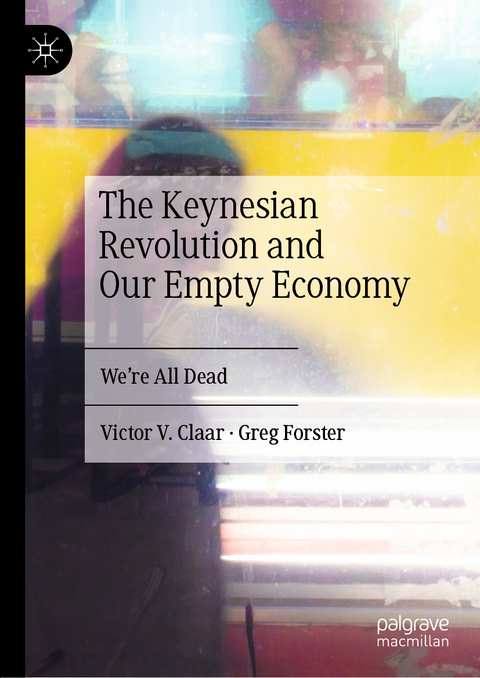
The Keynesian Revolution and Our Empty Economy
Springer International Publishing (Verlag)
978-3-030-15807-1 (ISBN)
This book considers the cultural legacy of the Keynesian Revolution in economics. It assesses the impact of Keynes and Keynesian thinking upon economics and policy, as well as the response of the Chicago and Austrian schools, and the legacy of all three in shaping economic life. The book is a call to restore economics to its roots in moral and cultural knowledge, reminding us that human beings are more than consumers. The Keynesian Revolution taught us that we should be happy if we are prosperous, but instead we feel hollow and morally anxious - our economy feels empty. Drawing on paradigms from earlier historical periods while affirming modern market systems, this book encourages a return to a view of human beings as persons with the right and responsibility to discover, and do, the things in life that are intrinsically good and enduring. Because in the long run, the legacy of our choices will continue long after "we're all dead."
Victor V. Claar is BB&T Distinguished Professor of Free Enterprise at Florida Gulf Coast University, where he is an Associate Professor of Economics. He is the coauthor (with Robin Klay) of Economics in Christian Perspective. Prof. Claar also serves as an Affiliate Scholar in Economics at the Acton Institute. Greg Forster is Director of the Oikonomia Network, a learning community for theological educators, and also serves as Visiting Assistant Professor of Faith and Culture at Trinity International University. He is the author of nine books and co-editor of four books. Dr. Forster is also a senior fellow with EdChoice.
1. Introduction: Work Hard and Play by the Rules.- 2. From Socrates to Smith: The Moral and Cultural Foundations of Economics.- 3. Just the Facts, Mammon: Modern Aspirations to Moral and Cultural Neutrality.- 4. Keynes' Revolutionary Vision: Consumer Satisfaction as Moral Crusade.- 5. Forging the Consumption Paradigm: A Morally Neutral Moral Crusade.- 6. "We're All Keynesians Now": How the Revolution Transformed Our Economy and Culture.- 7. Two Counter-Revolutions: The Chicago and Austrian Schools and the Consumption Paradigm.- 8. Pull Your Own Weight: Moral and Cultural Conditions for Productivity.- 9. Leave it Better than You Found It: Moral and Cultural Conditions for Stewardship.- 10. Respect Other People: Moral and Cultural Conditions for Human Dignity.- 11. Putting First Things First: Moral Consensus for a Flourishing Economic Culture.- 12. Conclusion: Toward a Moral Consensus Paradigm.
"The Keynesian Revolution and Our Empty Economy is a significant text that deserves Engagement rather than summary. The principal arguments are persuasively developed and elegantly written ... . Claar and Forster have written an excellent book. I have committed the sin of envy for which I repent. If youhave not already read it, do so. It will be good for both your mind and soul." (Brent Waters, Faith & Economics, Vol. 75, 2020)
"Every economist should read The Keynesian Revolution and Our Empty Economy. It asks major questions about our discipline ... . At times the book almost reads like a novel: it tells a story, but a thoroughand sensible one; a story that is well researched and thought out. ... This is a great book, and I am thankful for the opportunity to read it and interact with it. Thanks to Professors Claar and Forster for providing us with this valuable resource." (Todd P. Steen, Faith & Economics, Vol. 75, 2020)
"The Keynesian Revolution and Our Empty Economy is a thoughtful, carefully argued intellectual history of modernity and of the generally accepted analytical tools used to describe and critique it. ... the book is well worth reading. It offers bold arguments, logic, and evidence for the necessity of moral understandings and moral commitments in economics." (Peter J. Hill, The Independent Review, Vol. 24 (4), 2020)
| Erscheinungsdatum | 25.05.2019 |
|---|---|
| Zusatzinfo | XVII, 345 p. |
| Verlagsort | Cham |
| Sprache | englisch |
| Maße | 148 x 210 mm |
| Gewicht | 601 g |
| Themenwelt | Geschichte ► Teilgebiete der Geschichte ► Wirtschaftsgeschichte |
| Wirtschaft ► Volkswirtschaftslehre | |
| Schlagworte | anti-Keynesian • economic materialism • Economic Philosophy • John Maynard Keynes • Keynesianism • moral foundations of economics • Moral Philosophy • neo-Keynesianism • Political Economy • qualitative economic methodology • Social economics • wealth production |
| ISBN-10 | 3-030-15807-1 / 3030158071 |
| ISBN-13 | 978-3-030-15807-1 / 9783030158071 |
| Zustand | Neuware |
| Haben Sie eine Frage zum Produkt? |
aus dem Bereich


